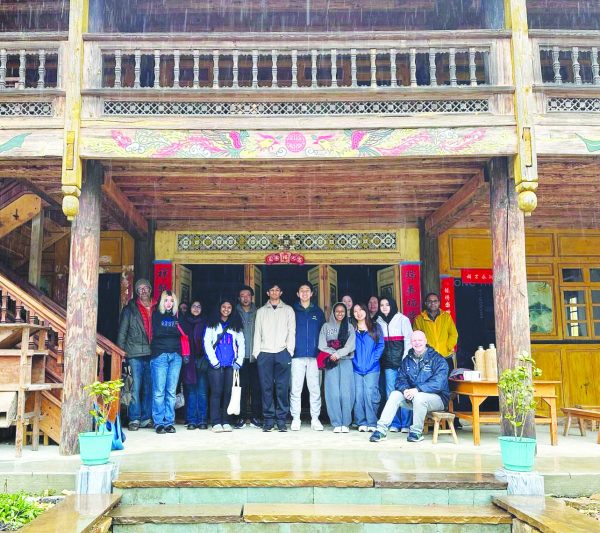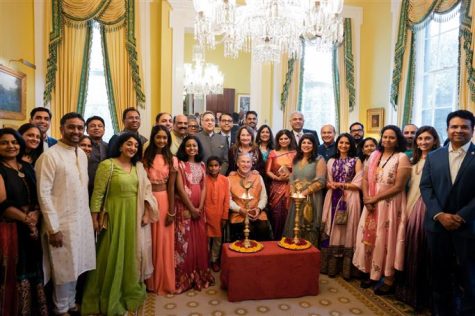The Hardships of Citizenship

As citizens of the United States, most of us take our opportunities for granted and don’t acknowledge the hundreds and thousands of people trying to receive the same chances.
Since the 1920s, the United States has attracted millions of people from hundreds of different countries. Today, with the United States exceeding the expected population, Congress dedicates their time in making sure illegal immigrants do not pass the U.S. border. Countless laws such as the Illegal Immigration Act and the Real ID Act are established in order to seize illegal people.
While many try to cross illegally, others go through the long and demanding process of naturalization and citizenship. The government has made four categories in becoming a citizen.
With man students migrating from different countries to Annandale, the citizenship process ha affected many of them.
Junior Paola Martinez has had multiple family members that have gone through the naturalization process. “Most of my family came from Bolivia in hopes of a better life and opportunities,” Martinez said.
Martinez stresses the challenges in becoming citizens.
“One of the biggest obstacles my family had to overcome was to learn English. My uncle was the first to receive citizenship and then he helped the rest of my family. We all worked hard and motivated each other,” Martinez said.
According to Paola, the time it took to become a naturalized citizen was also another irritating factor in the process. “Though each of my family members obtained their citizenships, each one was approximately five years.”
As an adult, a person must be literate in English, have good morals (according to the government) and have an adequate understanding of U.S. History and the U.S. Government. With all of these requirements imposed on an immigrant, many American citizens today would immediately be rejected if they had to go through the system.
People who are also applying for the U.S. military and their family are also granted citizenship, but this can also take years to acquire.
Junior Astrid Ligonde also talks about her family’s extensive effort in the naturalization process. “It took my father three or more years to finally receive citizenship,” Ligonde said.
Astrid’s father applied to the U.S. military when he was 18 years old.
“He has always dreamed about coming to America and joining the military was the perfect opportunity for him.”
A spouse of a U.S. citizen must also be literate in English and have good character, but also have been with their partner for three or more years and live in the U.S. for approximately 3-5 years after being naturalized. This means the spouse must be apart from their family.
Children that are going through the process of naturalization must have a U.S. citizen as a parent also known as jus sanguinis. If the child is born out of wedlock, they must take a blood test before they turn 18. The child will not be granted any citizenship if their U.S. citizen parent is deceased.
Even after an immigrant fulfills these requirements, the immigrant must wait for an interview and test that a good proportion of Americans could not pass.
The test consist of three main topics: American history, civics and geography, and American government. Each person is asked to answer 10 out of 100 questions about America and are expected to answer 6 of them correctly. Most of the questions (such as certain questions about the constitution’s amendments) that the system asks are one which some Americans can not answer. If an applicant fails twice, they must pay a fine of $680 to reapply.
With these different examples of citizenship, the question appears: is the Citizenship test too excessive or complacent the way it is?
The opinion to this debate is solely based on the experience the immigrant has endured.
Mr. Ligonde went through the system in 1990, which might explain why it was more efficient for him.
“He couldn’t get an interview after a few years and the process was never ending but after that, everything was pretty easy,” Ligonde said.
On the other hand, Martinez thinks the test is superfluous. “I think the whole thing is really excessive because many incidents can occur in a few years. Many lives can already be affected while awaiting for one simple reply.”
America is eminent for endless opportunities and hope for a better life, but with numerous demands from the Citizenship process, naturalization becomes an arduous task.

Nuhami Mandefro is the Entertainment Editor for the A-Blast. She is a senior and has been a journalism student for since her freshman. This is her second...





